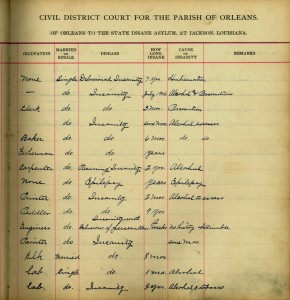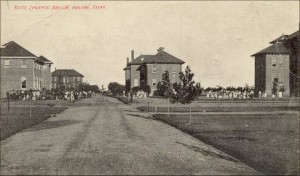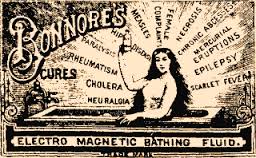Superintendents at insane asylums had every incentive to cure patients, since high cure rates brought both prestige and validation to their institutions. This is one reason that they urged families to get their loved ones into an asylum quickly, before the mental illness became established and more difficult to alleviate or cure. Continue reading
Tag Archives: epilepsy and insanity
Another Patient’s Fate
Susan Wishecoby was sent to the Canton Asylum for Insane Indians probably because of her epilepsy. She apparently did not know exactly what was wrong with her, and erroneously thought she was going to a hospital. She wrote many letters to the commissioners of Indian Affairs in office during her confinement, but they always referred her requests for discharge to Dr. Harry Hummer.
Wishecoby obviously got better, and worked with the attendants keeping the wards clean. After Commissioner Burke forwarded a letter of Wishecoby’s to Hummer, he replied: “She suffered from epileptic seizures, upon admission, but has not had one, so far as we have observed, for more than three years.” Hummer went on to say that Wishecoby had had delusions which were also in abeyance, and that her “irascible nature” was probably permanent. Hummer added that “her actions here are all that could be desired.”
After making such a case for her recovery, Hummer hastened to add: “…that she is endeavoring to convince us that she should be returned, and, when the restraints of this institution are removed, she may give way.” Then he got to the heart of the matter–she was of childbearing age. “If we are concerned only in treating this individual, we should probably discharge her. If we are concerned also in treating the future generations and preventing the increase of the number of cases of mental disease, we should pause and give this matter deep consideration.”
Records are incomplete, but the letters that remain show that Hummer wrote these words to the commissioner in July, 1925, and that Susan Wishecoby was returned home on September 14, 1925. The intervention of her brother and the reservation superintendent probably came into play, since references are made to them in additional letters around that same time.
______________________________________________________________________________________



